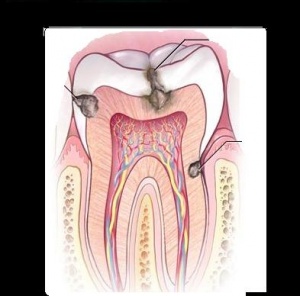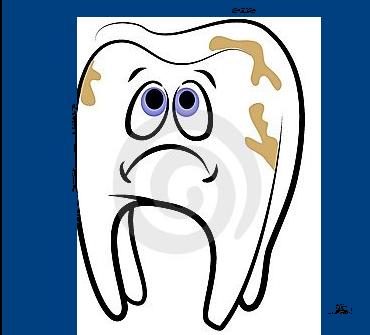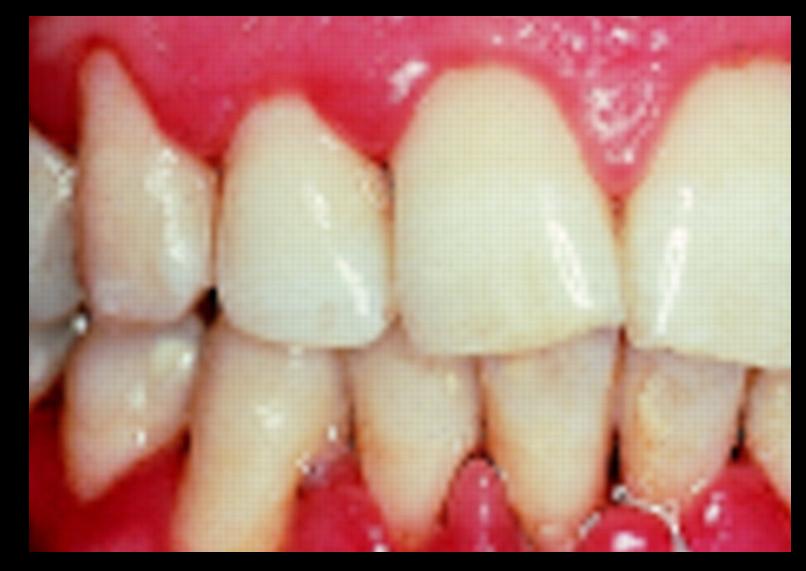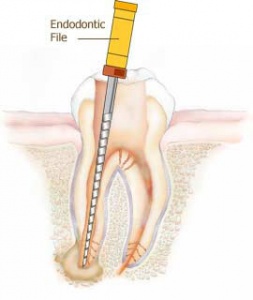 You’ve probably heard all sorts of horror stories about sugar. It packs on weight; it’s bad for your teeth; it causes health problems. And you know what? They’re all true. Okay, most people like to have a little sugar in their diet. After all, a spoonful of it makes the medicine go down, right? Remember though … that’s a spoonful of sugar. But do you know how many spoonfuls of sugar there are in just one can of non-diet soda? Are you ready for this? The answer is … ten! That’s right, there are ten teaspoons of sugar in every single 12-ounce can of soda! Recent studies show that the average American teenager drinks upwards of a can and a half cans of soda per day. That equals the consumption of more than four pounds of sugar per month in soda alone! And all that sugar is wreaking havoc on teeth.
You’ve probably heard all sorts of horror stories about sugar. It packs on weight; it’s bad for your teeth; it causes health problems. And you know what? They’re all true. Okay, most people like to have a little sugar in their diet. After all, a spoonful of it makes the medicine go down, right? Remember though … that’s a spoonful of sugar. But do you know how many spoonfuls of sugar there are in just one can of non-diet soda? Are you ready for this? The answer is … ten! That’s right, there are ten teaspoons of sugar in every single 12-ounce can of soda! Recent studies show that the average American teenager drinks upwards of a can and a half cans of soda per day. That equals the consumption of more than four pounds of sugar per month in soda alone! And all that sugar is wreaking havoc on teeth.
 Disrepair, rot, extinction … these are the words that come up when you type ‘decay’ into your online thesaurus. Extinction! And that is exactly what can happen if your teeth are decaying. Tooth decay has the power to destroy your tooth structures and causes you to lose your teeth. And then, before you know it, your teeth are as obsolete as the mighty Tyrannosaurus Rex. Exactly as the name suggests, tooth decay causes ruin wherever it goes. It can destroy any tooth in your mouth, from top to bottom, inside and out, on any level, and it can even destroy your gums and the bones that support your teeth. In fact, recent reports from medical researchers and top dentists indicate that, if it is left untreated, tooth decay not only can lead to gum disease, but more serious health problems such as heart disease and stroke. The saddest part about tooth decay is that it’s almost totally avoidable and preventable. There’s simply no reason to suffer from tooth decay and all the destruction it brings with it. In just a few simple steps, teeth can be healthy and strong, making tooth decay, rather than teeth, a thing of the past.
Disrepair, rot, extinction … these are the words that come up when you type ‘decay’ into your online thesaurus. Extinction! And that is exactly what can happen if your teeth are decaying. Tooth decay has the power to destroy your tooth structures and causes you to lose your teeth. And then, before you know it, your teeth are as obsolete as the mighty Tyrannosaurus Rex. Exactly as the name suggests, tooth decay causes ruin wherever it goes. It can destroy any tooth in your mouth, from top to bottom, inside and out, on any level, and it can even destroy your gums and the bones that support your teeth. In fact, recent reports from medical researchers and top dentists indicate that, if it is left untreated, tooth decay not only can lead to gum disease, but more serious health problems such as heart disease and stroke. The saddest part about tooth decay is that it’s almost totally avoidable and preventable. There’s simply no reason to suffer from tooth decay and all the destruction it brings with it. In just a few simple steps, teeth can be healthy and strong, making tooth decay, rather than teeth, a thing of the past.
 Gingivitis is a form of gum disease that, if it is left untreated, can lead to periodontitis. This is a more serious form of gum disease that causes infections of the gums that can damage soft tissue and even destroy the bone structures that support your teeth. Periodontitis has even been reported as a contributing factor that can lead to serious health complications including heart disease and stroke. These are just some of the reasons gingivitis must be taken seriously. According to the AmericanAcademy of Periodontology, gingivitis is the more common form of gum disease and, even though it is a mild form of gum disease, it often leads to the more serious gum disease, periodontitis. Gingivitis can be painless, which means it often goes undetected, and therefore, neglected. The fact is, though, that gingivitis is easy to prevent. With a simple oral hygiene routine that takes just a few minutes a day, your teeth and gums should remain healthy and free of disease for the rest of your life. Here is further information on gingivitis, including the signs and symptoms to watch out for, how you and your family dentist in Clearwater can treat gingivitis, and how to prevent it in the first place.
Gingivitis is a form of gum disease that, if it is left untreated, can lead to periodontitis. This is a more serious form of gum disease that causes infections of the gums that can damage soft tissue and even destroy the bone structures that support your teeth. Periodontitis has even been reported as a contributing factor that can lead to serious health complications including heart disease and stroke. These are just some of the reasons gingivitis must be taken seriously. According to the AmericanAcademy of Periodontology, gingivitis is the more common form of gum disease and, even though it is a mild form of gum disease, it often leads to the more serious gum disease, periodontitis. Gingivitis can be painless, which means it often goes undetected, and therefore, neglected. The fact is, though, that gingivitis is easy to prevent. With a simple oral hygiene routine that takes just a few minutes a day, your teeth and gums should remain healthy and free of disease for the rest of your life. Here is further information on gingivitis, including the signs and symptoms to watch out for, how you and your family dentist in Clearwater can treat gingivitis, and how to prevent it in the first place.
 Everyone knows that the jaw is an extremely important part of the human body. Most of us do not think much about our mouths … it’s just a given that we can eat and speak. There’s a lot going on in the human jaw, and a lot that can go wrong if jaw health is not optimal.
Everyone knows that the jaw is an extremely important part of the human body. Most of us do not think much about our mouths … it’s just a given that we can eat and speak. There’s a lot going on in the human jaw, and a lot that can go wrong if jaw health is not optimal.
The jaw, or ‘mandible,’ is the only part of the face that can move. Without this capacity, of course, we would not be able to eat. And, regardless of what acclaimed ventriloquist Jeff Dunham (especially well known to Floridians) and his famed puppet characters might say, without the capacity of the mandible to move, humans also would not be able to speak. The lower mandible, the movable part, holds the lower teeth in place, while the upper mandible holds the upper teeth in place but does not move. The structure of this part of anatomy is one of the most fascinating in human biology.
 A root canal is the procedure done to save a badly damaged tooth. Whether it is caused by decay or infection, this procedure is needed in order to refrain from having to remove the tooth. During the procedure you will receive a local anesthetic in order to dull the pain while the root canal is taking place. This procedure can be done locally at a family dentist in Clearwater, Florida.
A root canal is the procedure done to save a badly damaged tooth. Whether it is caused by decay or infection, this procedure is needed in order to refrain from having to remove the tooth. During the procedure you will receive a local anesthetic in order to dull the pain while the root canal is taking place. This procedure can be done locally at a family dentist in Clearwater, Florida.
Root Canal Procedure
The root canal is the natural cavity within the tooth. Inside of the cavity also lies the soft area known as the pulp, and the tooth’s nerve. During the procedure, your family dentist or dental specialist will remove the pulp and the nerve from the inside of the damaged tooth. Contrary to what some may think, the removal of the nerve will not affect the everyday functions of the tooth. Its only purpose is to distinguish between the senses of hot and cold.

